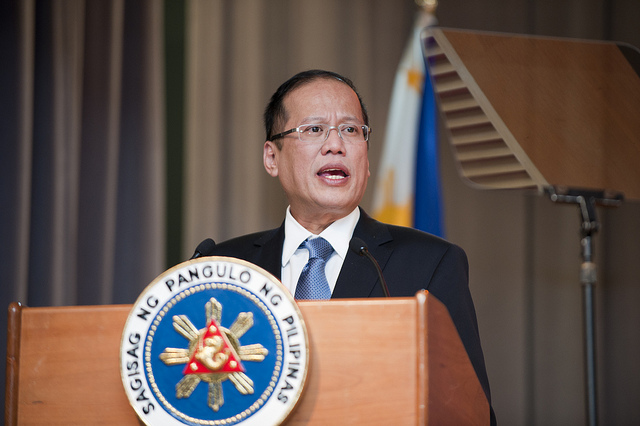
There are plenty of reasons for scepticism over the talks planned for early next month to bring about some form of settlement in the Philippines’ southern island of Mindanao, which has been torn by Muslim separatist conflicts since the 1960s. But there are reasons for hope as well.
The most substantial of those is that Benigno Aquino III, President of the Philippines, wants a settlement before his six-year term is up in 2016. Some of his predecessors have sought settlements, but one or another aspect of those proposals to bring peace has fallen through. It’ll be hard for the new talks not to be dragged down by the memories of past failures and the suspicions they’ve engendered.
It won’t be up to the negotiators alone: the main Philippines Government representative and the representative of the Moro Islamic Liberation Front (MILF). Nor will it be up to the Malaysian facilitator. Malaysia will probably host these talks, as it has hosted talks in the past. But the facilitator makes a point of not having the role of being a negotiator as well.
To some extent it’ll be up to the military commanders in the field, either of the Philippines Armed Forces or of the 12,000-strong military of the MILF. If a Government commander or an MILF commander takes it into his head to launch an attack, it could all break down, as other negotiations have broken down in the past.
The aim of the talks is to set up an autonomous area in the island—not the first time such a task been attempted. The MILF and the Moro National Liberation Front, from which the MILF broke away in 1976, have accepted autonomy, not a separate state. A recent attempt at agreement over autonomy was the Memo of Agreement on Ancestral Domain (PDF). That had a clause in it, signed off by both the Government and the MILF, which allowed for later referenda in villages and areas where there were Muslims but also people of other faiths and backgrounds. Christians petitioned the Supreme Court, which declared the proposed agreement unconstitutional. That was in 2008.
The negotiators will be working on something called a Framework Agreement on Bangsamoro (FAB), Bangsamoro being the new name for Muslim Mindanao. It will cover five Muslim provinces. Muslims make up about 20% of Mindanao’s 22 million people. Over-all, slightly more than 82% of the 105 million Filipinos call themselves Roman Catholic, and about 5% Muslim.
The agreement came into being in October of last year but a number of major issues weren’t settled and these will be addressed in next month’s talks. They include wealth-sharing, power-sharing, normalisation and transitional arrangements. Normalisation is the term for getting the MILF to give up its arms and the integration of the fighters into the society. ‘Transitional arrangements’ refers to the governmental structures. That’s where most progress has been made in thinking.
If the MILF and the Government do settle the terms, that’ll be a huge step forward, though it won’t mean that all militant groups in Mindanao will accept the agreement and refrain from fighting. Some of the groups adhere to a more extreme form of Islam, some to communist ideology. The MILF has expelled some of the groups, a few of which are listed as terrorist groups by the US. Fighting between Government forces and these groups is likely to continue.
A truce is already in existence and has largely been observed by the MILF and the Government forces, despite a handful of incidents which might have caused it to break down. The risks will come not just from organisations such as Abu Sayyaf or the Bangsamoro Islamic Freedom Movement, which reject the proposed agreement, but also from some of the military commanders within the MILF who are suspicious of the Government and who feel betrayed by earlier attempts at reaching agreements. They believe these were undermined by the Government. Benigno Aquino III appears to have grasped the point that past governments are viewed as having betrayed the terms of agreements. He appears determined to avoid a repetition.
Mindanao has resources but is poor—a condition the Government believes is caused largely by the conflict, in which 150,000 people have been killed since 2000 and about 3,000,000 displaced. Some of the more radical groups have international connections, thereby complicating internal Southeast Asian politics. There’s a lot to be gained by bringing comparative peace and if that’s the legacy Benigno Aquino III leaves, he’ll have made a huge contribution not just to Mindanao, and to the Philippines, but to the region as well.
Stuart McMillan is an adjunct senior fellow in the school of social and political sciences at the University of Canterbury. Image courtesy of Flickr user World Bank.

